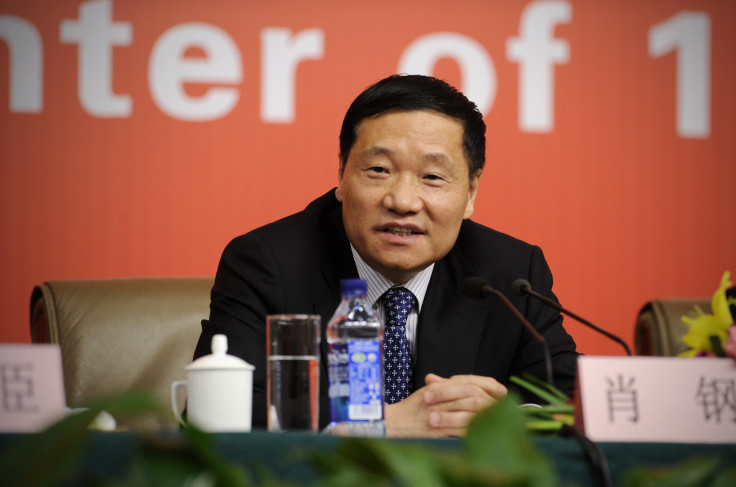Xiao Gang, Architect Of China's Circuit-Breaker System, Grilled By Cabinet Officials

The architect of the Chinese stock market’s heavily criticized circuit-breaker system was grilled at a meeting convened by the nation’s Cabinet Thursday, the Wall Street Journal reported. Analysts have blamed the now-suspended mechanism for fueling this week's heavy losses in Chinese stocks.
China’s two main stock markets, the Shanghai Composite and the Shenzhen Composite, fell this week by 10 percent and 14 percent, respectively. Chinese regulators Thursday officially scrapped the circuit-breaker system, which was designed to prevent a rapid sell-off in stocks like the crash that took place during the summer.
Xiao Gang, the country’s chief securities regulator, introduced the rules as a means of preventing sell-offs. Instead, analysts said they had the opposite effect, spooking investors and preventing markets from recovering on their own. Under the system, a 7 percent drop in the stock index automatically triggered a halt to trading.
“Xiao is under tremendous pressure,” an official at the China Securities Regulatory Commission told the Wall Street Journal. “Unlike in the summer, when he might have been unfairly criticized for the stock selloff, the latest big drop was a direct result of a system he had insisted on putting in place.”
The circuit breaker first took effect Monday, suspending trading for the day after a 7 percent decline. Trading was halted again Thursday after just 29 minutes.
Guo Tianyong, a professor at Beijing’s Central University of Finance and Economics, said the system is ill-conceived for Chinese markets, which include more small-scale individual investors than in the United States or Europe. “Small investors have a herd mentality, which easily leads to frantic selling of shares,” he told the South China Morning Post.
Chinese regulators Thursday introduced new rules to prevent mass sell-offs. They require investors with more than 5 percent ownership in listed companies to apply in advance before selling shares.
A spokesman for China's top financial regulator told the Wall Street Journal Xiao Gang has taken on an additional role at the agency as head of a new “poverty assistance” group. He has not been replaced officially .
In the United States, the S&P 500 suspends trading for the day if the index falls by 20 percent.
© Copyright IBTimes 2024. All rights reserved.






















